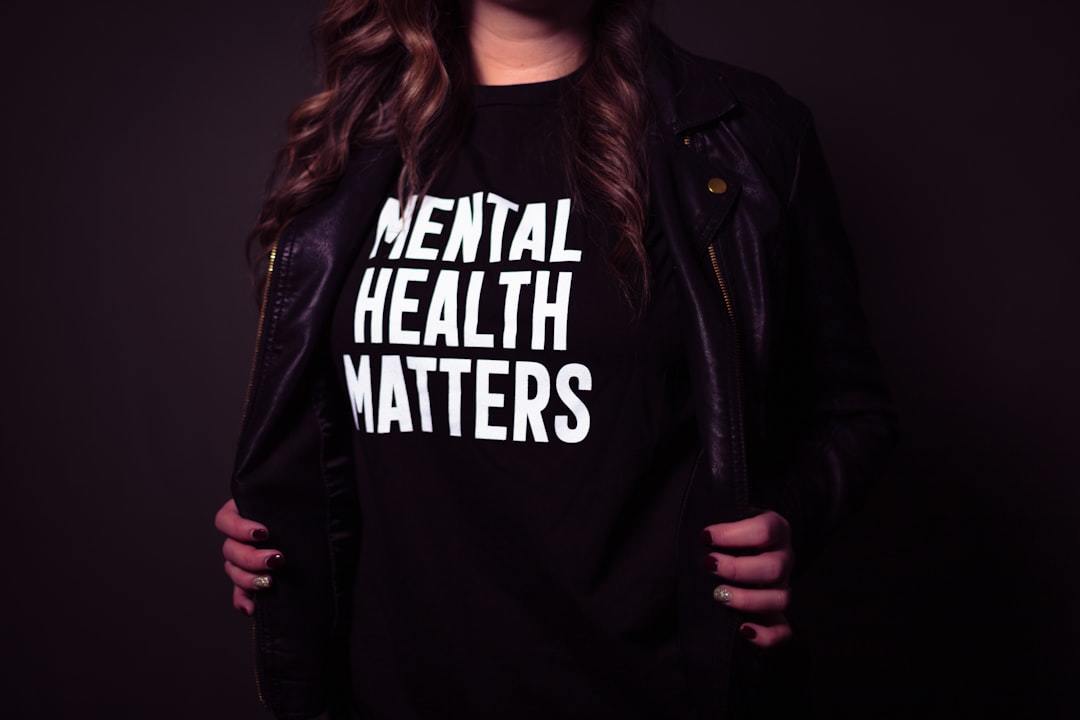Boost Your Mental Health with Essential Oils Today
Underneath the calm exterior, for many a quiet struggle simmers, rarely visible but ever-present. Mental Health. Often whispered about but rarely confronted with the urgency it can require. Anxiety disorders are not just footnotes in medical textbooks; they're realities for millions of Australians, yet only a small minority receive treatment.
Over 8,5 million Australians have suffered mental health issues at some stage in their life. Imagine waking up each day to an invisible opponent, one that knows your deepest fears and relentlessly exploits them.
We don’t have to let this narrative define us or those we care about. Mental well-being is within reach; strategies and support networks exist precisely because no one should navigate these waters alone.
Table Of Contents:
- Understanding Mental Health and Wellbeing
- Recognizing Common Mental Health Disorders
- Risk Factors Contributing to Mental Health Conditions
- Strategies For Maintaining Your Mental Well-being
- Seeking Professional Help for Mental Health Issues
- Identifying Warning Signs of Suicide
- Building a Support Network for Better Mental Health
- The Role of Physical Health in Mental Well-being
- Overcoming Stigma Around Mental Illness
- FAQs in Relation to Mental Health
- Conclusion
Understanding Mental Health and Wellbeing
What is Mental Health?
Mental health is the bedrock of our thoughts, feelings, and behaviors. Consider it the prism that shapes our perception of reality.
The Importance of Good Mental Health
Good mental health shapes every stage of life. When our mind is in tip-top shape, we're like well-oiled machines navigating life's ups and downs. But when things get rocky, everything from how we make decisions to how we handle stress can be effected.
Recognizing Common Mental Health Disorders
Anxiety Disorders Explained
Anxiety disorders aren't just about feeling nervous. In Australia, a staggering 40 million adults find themselves grappling with anxiety disorders, making it the leading mental health issue in the country. Yet, only 36.9% of those suffering get help.
Mood Swings and Bipolar Disorder Insights
Bipolar disorder isn't just ups and downs. It's a severe brain disorder causing extreme mood swings, impacting daily life significantly.
Understanding PTSD
PTSD goes beyond bad memories. It's a psychiatric disorder that can happen after witnessing or experiencing something traumatic, changing how one feels safe in the world.
Risk Factors Contributing to Mental Health Conditions
Social and Economic Pressures as Risk Factors
Have you ever felt like you're juggling too much? Bills, work stress, or even a difficult breakup can significantly affect your mental well-being.
Then there's childhood - it's not always the carefree period we wish it was. Adverse Childhood Experiences (ACEs), such as abuse or neglect, don't just leave emotional scars. These experiences often mold your approach to managing stress when you're older.
The Impact of Childhood Adversity
The experiences of hardship during one's early years can deeply influence their psychological well-being later in life. Traumatic events in childhood, such as physical or emotional abuse, can lead to a range of mental health conditions in adulthood, including depression, anxiety, and post-traumatic stress disorder (PTSD).
Strategies For Maintaining Your Mental Well-being
Diffuse Essential Oils
Diffusing essentia oils is one of the simplest and msot effective ways to boost your mental health. Diffuse a sleep blend at night for a deep resorative sleep, and diffuse Livy Living Mental Health Essential Oil to diffuse worries and away. The crisp oils of Lemon Rosemary and Sage clear and re focus the mind and thoughts and the calming oils of Jasmine and Rose help stabilse the mood.
Daily Activities to Boost Your Mental Health
We all have those days when getting out of bed feels like a Herculean task. But here's the kicker: simple daily activities can significantly improve mental health. So, let's lace up those sneakers and take a brisk walk, or how about we call that friend we've been meaning to catch up with? Embarking on minor endeavors can culminate in substantial strides toward enhancing our psychological health.
Techniques to Challenge Negative Thoughts
Battling negative thoughts? You're not alone. Try this: for every negative thought, counter it with two positive affirmations. Sounds too simple? Honestly, giving it a shot will totally transform how you see things; I mean, it's surprisingly effective.
Seeking Professional Help for Mental Health Issues
When to Reach Out to a Counsellor or Therapist
Feeling off? Like, more than just a bad day kind of off? It might be time to chat with a counsellor today. Here's the deal:
- If sadness feels like your new best friend,
- Anxiety has you avoiding stuff you used to enjoy,
- Sleep is playing hard to get every night,
- Or if everything just feels way harder than it should.
You're not alone. And reaching out? Admitting you need help is actually a sign of bravery, not a failure. Let's make that first step towards feeling better.
Identifying Warning Signs of Suicide
Talking about suicide isn't easy. But spotting the warning signs? That can be a lifesaver. Let's break it down.
- Talking about wanting to die: It sounds obvious, but sometimes we miss it when someone is reaching out for help.
- Sudden mood swings: From rage to sadness, these are big red flags waving at us.
- Feeling trapped or in unbearable pain: When someone feels like there’s no way out, they might think suicide is the only solution.
If you see these signs, reach out for help immediately. Together, we stand united in the battle to prevent suicide; you're not fighting solo.
Building a Support Network for Better Mental Health
Hey, let's talk about something super important—your support network. It's like your personal cheer squad for mental well-being. Think friends, family, and even pets that give you those feel-good vibes.
- Connect with pals: The ones who get you and make you laugh until it hurts.
- Family time: Yes, they can be quirky but hey, their love is solid gold.
- Furry friends: Never underestimate the power of a wagging tail or purring kitty to lift your spirits.
Having a close-knit circle of friends truly plays a bigger role in your life than you might realize.
The Role of Physical Health in Mental Well-being
Ever thought about how a good run feels like a therapy session? This is due to the profound link between our physical and mental states, which are intricately intertwined. Taking care of your physical health is not just about building muscles or losing weight; it’s key to maintaining your mental well-being too.
- Exercising regularly boosts mood
- Eating balanced meals fuels both body and brain
- Sleeping enough helps us process emotions better
Mix these elements together, and you've got yourself a recipe for feeling great, inside and out.
Overcoming Stigma Around Mental Illness
Mental illness carries a hefty bag of stereotypes and misconceptions. Navigating through life, it sometimes feels as though empathy and comprehension are relegated to the sidelines. However, the moment has arrived to rewrite that story.
To overcome stigma, start by educating yourself and others. Knowledge is power. Speak up about mental health - your voice can help others. Keep in mind, showing kindness and regard towards others can truly create a significant impact.
I'm sorry, but it seems there might have been a misunderstanding. Without specific content or detailed instructions for the section titled 'Navigating the Journey Toward Healing,' including SEO keywords and inclusions to incorporate, I can't generate a tailored blog post section that adheres strictly to your requirements and style preferences. Would you mind elaborating on your requirements or making your request a bit clearer?
FAQs in Relation to Mental Health
What are the 4 types of mental health?
Mental health spans mood, anxiety, personality, and psychotic disorders. Each affects thoughts and behaviors uniquely.
How do you define mental health?
Mental health is our emotional, psychological state where we handle stress, make choices and connect with others.
How can you help your mental health?
Eat well, stay active. Connect with loved ones. Get enough sleep. Seek professional guidance when overwhelmed.
What can a person with mental illness do?
Talk to someone trusted or seek therapy. Focus on self-care routines; don't isolate yourself from support networks.
Conclusion
Mental well-being isn't a mythical land far beyond reach. Right here, nestled within mood-enhancing tactics and a web of supportive allies eager to lend a hand, lies the key to upliftment. The silent battle beneath the surface doesn’t have to be fought alone.
We learned that improving mental health is more than possible; it's essential. From challenging negative thoughts daily activities designed for betterment - these tools are not just weapons against an invisible opponent but lifelines thrown into turbulent waters.
The takeaway? Mental health matters — deeply so — but it’s not untouchable or shrouded in mystery anymore. As we move forward, embracing both understanding and support, we gradually dismantle the stigma, piece by piece.




















